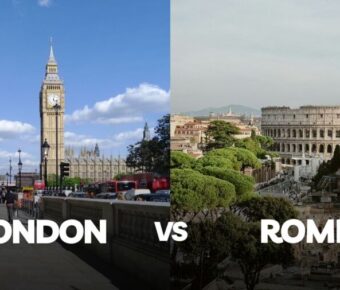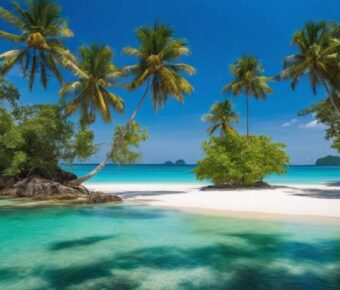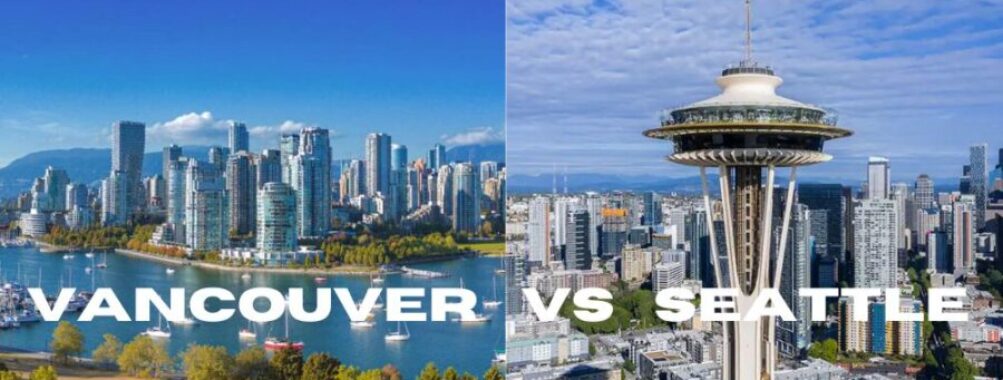
Vancouver vs Seattle: Which Pacific Northwest City Offers Better Living in 2025?
Seattle and Vancouver are two iconic jewels of the Pacific Northwest. Each offers its own flavor of coastal living and urban adventure. These sister cities share dramatic mountain backdrops, vibrant food scenes, and rich cultural heritage, yet maintain distinct personalities that set them apart.
Vancouver edges out Seattle as the better choice for most visitors. 3-5 days are ideal to explore its attractions compared to Seattle’s recommended 2-3 days. The Canadian city wins points for its family-friendly activities, extensive public transit system, and seamless blend of nature with city life.
Both cities enjoy similar mild climates and comparable living costs, though Vancouver’s food prices run higher. Each destination boasts unique festivals, markets, and outdoor spaces that celebrate the laid-back Pacific Northwest lifestyle. The close proximity of these cities makes it easy to visit both in one trip.
Table of Contents
- Geographical Overview
- Location and Topography
- Climate Comparison
- Temperate Climate
- Rainfall Patterns
- Sunshine Hours
- Cultural Experiences
- Museums and Galleries
- Performing Arts and Music
- Neighborhood Cultural Diversity
- Economy and Employment
- Job Opportunities
- Cost of Living
- Average Salary
- Urban Lifestyle
- Housing and Real Estate
- Public Transportation
- Food and Dining Scene
- Outdoor Recreation
- Parks and Nature
- Sports and Fitness Activities
- Waterfront and Beaches
- Leisure and Entertainment
- Nightlife and Social Scene
- Shopping and Markets
- Family-Friendly Attractions
- Comparison Summary
- Key Similarities
- Distinct Differences
- Frequently Asked Questions
- What are the differences in cost of living between Vancouver and Seattle?
- What factors contribute to Vancouver’s high popularity compared to Seattle?
- How do the tax systems differ between Seattle and Vancouver?
- Which city, Vancouver or Seattle, offers a better quality of life for residents?
- Can you compare the population sizes and urban density of Seattle versus Vancouver?
- Between Vancouver and Seattle, which city is considered more pedestrian-friendly?
- Book Your Dream Experience
- More Travel Guides
Geographical Overview
Seattle and Vancouver sit in stunning locations along North America’s Pacific coast, each nestled between mountains and water. Their beautiful natural settings define these cities and shape daily life for residents.
Location and Topography
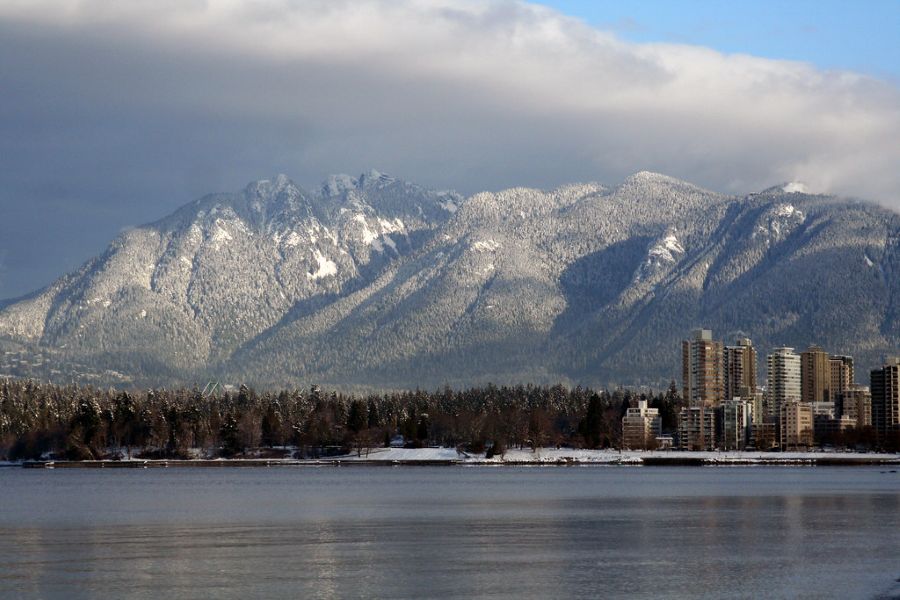
Both cities occupy prime spots in the Pacific Northwest, about 140 miles apart. Vancouver rests between the Coast Mountains and the Pacific Ocean, creating a dramatic backdrop. The North Shore Mountains tower over the city’s northern edge.
Seattle spreads across hills between Puget Sound and Lake Washington. The Cascade Mountains rise to the east, while Mount Rainier stands as an iconic landmark south of the city. Elliott Bay curves around Seattle’s western edge.
The cities share similar geography that creates natural harbors perfect for shipping. Vancouver’s Stanley Park peninsula juts into Burrard Inlet. Seattle’s downtown sits on a strip of land between Elliott Bay and Lake Union.
Both locations experience mild temperatures thanks to Pacific currents. The mountains trap moisture, giving these cities their famous rainy weather and lush green spaces.
Climate Comparison
Seattle and Vancouver share remarkably similar weather patterns due to their Pacific Northwest location. Both cities enjoy mild temperatures year-round with distinct wet and dry seasons.
Temperate Climate
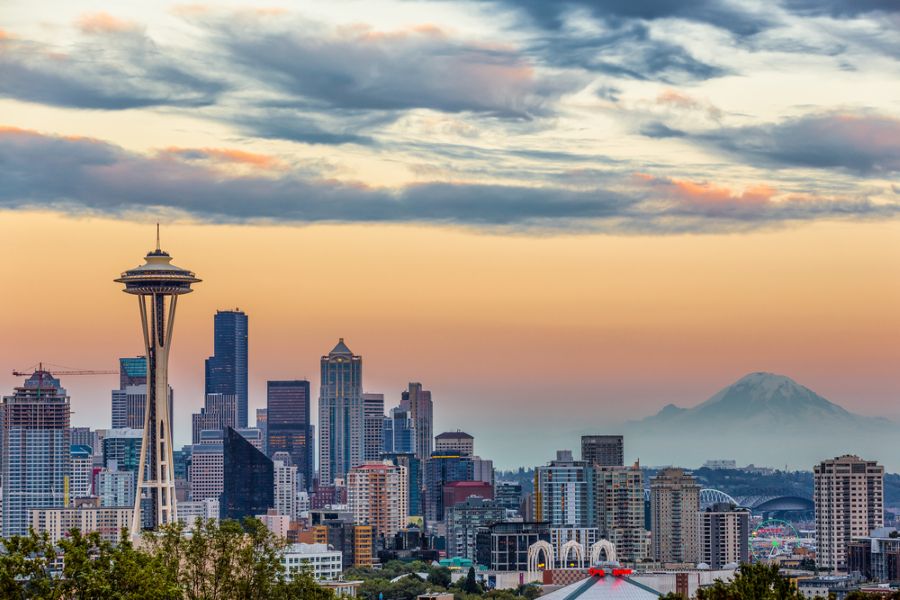
Both cities benefit from a moderate oceanic climate influenced by the Pacific Ocean. Winters stay fairly mild, with temperatures rarely dropping below freezing. The average winter temperatures range from 35-45°F (2-7°C).
Summer temperatures are pleasant and comfortable. Both cities experience warm days between 70-80°F (21-27°C) from June through September. Neither city typically needs much air conditioning.
Spring and fall bring mild temperatures between 50-65°F (10-18°C). These transition seasons offer comfortable conditions for outdoor activities.
Rainfall Patterns
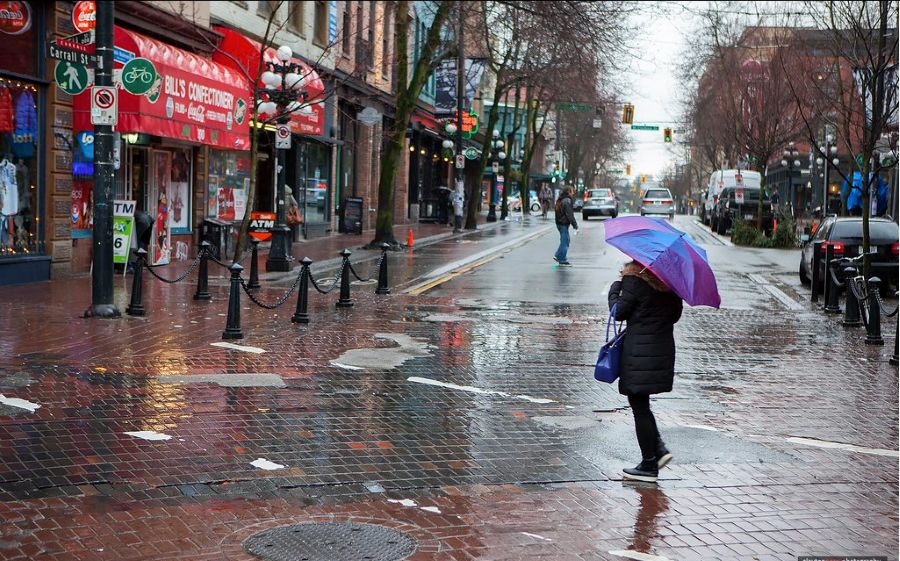
These Pacific Northwest cities are famous for their rain. Both receive most rainfall between October and March during the wet season.
Vancouver gets slightly more rainy days per year than Seattle. The rain tends to be light but persistent rather than heavy downpours.
Both cities see similar annual rainfall amounts:
- Vancouver: 45-50 inches
- Seattle: 38-40 inches
Sunshine Hours
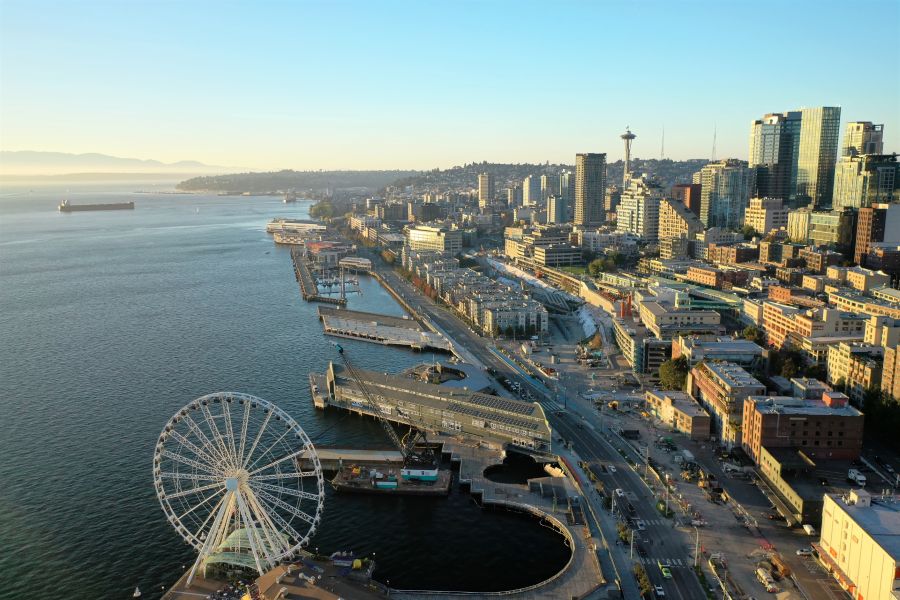
Seattle edges out Vancouver when it comes to sunny days. The annual breakdown shows:
- Seattle: 152 sunny days per year
- Vancouver: 143 sunny days per year
Summer brings the most sunshine to both cities. July and August offer long, bright days perfect for exploring outdoors.
Winter months see the least sunshine. December and January bring frequent cloud cover and gray skies to both cities.
Cultural Experiences
Seattle and Vancouver both offer rich cultural scenes that blend art, music, food, and diverse neighborhoods. Each city puts its own unique spin on Pacific Northwest culture through distinct museums, performing venues, and vibrant ethnic communities.
Museums and Galleries
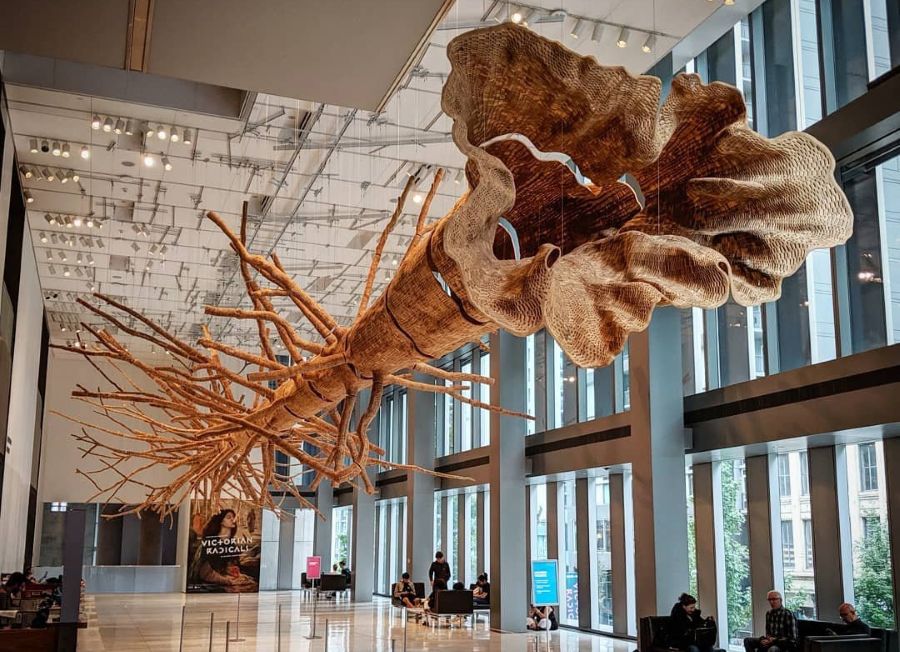
The Seattle Art Museum showcases an impressive collection of Native American and Pacific Northwest art alongside rotating international exhibits. The Museum of Pop Culture (MoPOP) celebrates music, sci-fi, and popular culture in a striking Frank Gehry-designed building.
Vancouver’s Museum of Anthropology houses one of the world’s finest collections of First Nations art and artifacts. The Vancouver Art Gallery features Canadian artists and photography in a beautiful heritage building downtown.
Performing Arts and Music
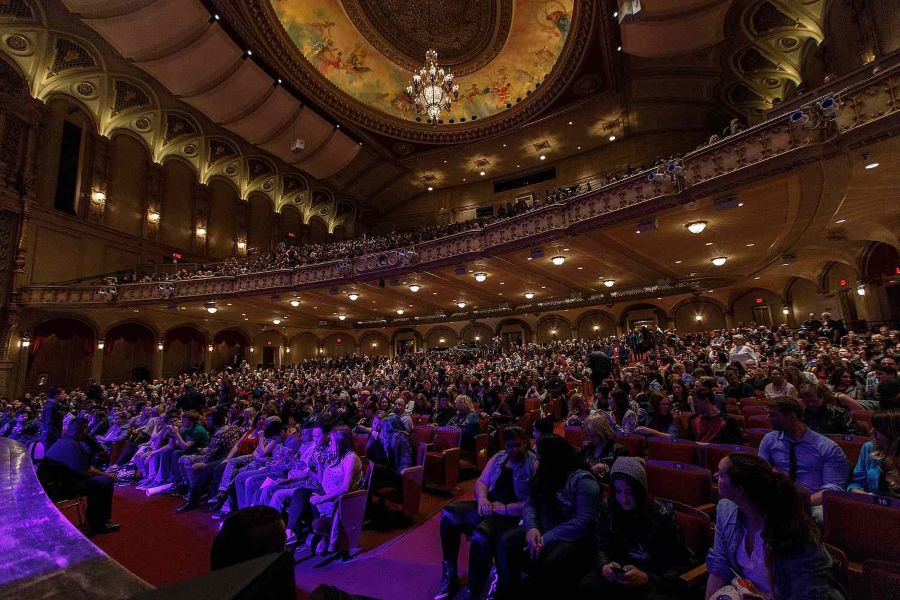
Seattle’s music legacy runs deep, from grunge pioneers like Nirvana to today’s thriving indie scene. The city supports multiple symphony orchestras, opera companies, and theater groups. Venues like The Showbox and Neumos host live shows nearly every night.
Vancouver’s cultural calendar includes performances by the Vancouver Symphony Orchestra and Ballet BC. The city’s theater district along Granville Street features both mainstream productions and experimental works.
The Queen Elizabeth Theatre presents Broadway shows and concerts in an iconic mid-century venue.
Neighborhood Cultural Diversity
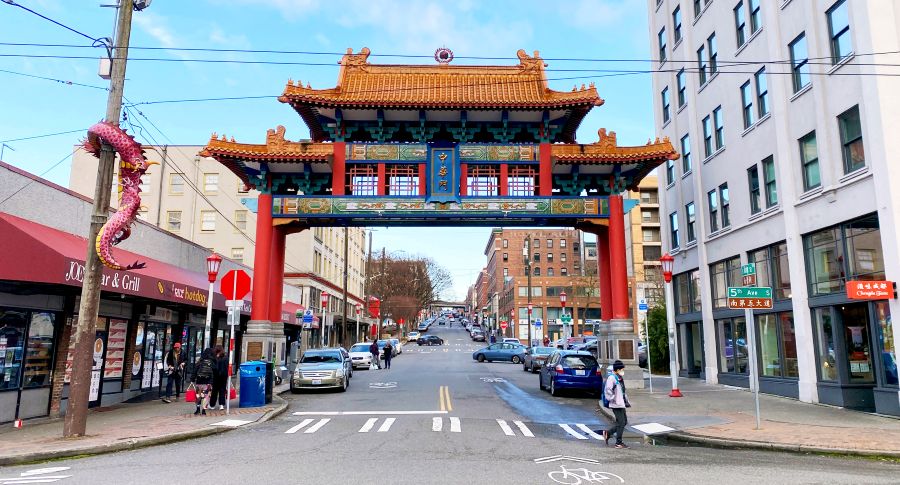
Seattle’s International District spans Chinatown, Japantown, and Little Saigon. Pike Place Market blends local artisans, street performers, and ethnic food stalls in a historic waterfront setting.
Vancouver’s diverse neighborhoods include the historic Chinatown district with its classical gardens and dim sum restaurants. Commercial Drive attracts artists and musicians with its Italian heritage and counter-culture vibe.
Both cities celebrate their multicultural identity through year-round festivals, night markets, and community events that showcase local traditions and cuisine.
Economy and Employment
Seattle and Vancouver showcase distinct economic landscapes shaped by their key industries and workforce dynamics. Seattle’s tech-driven economy offers higher wages, while Vancouver maintains steady growth through diverse sectors.
Job Opportunities
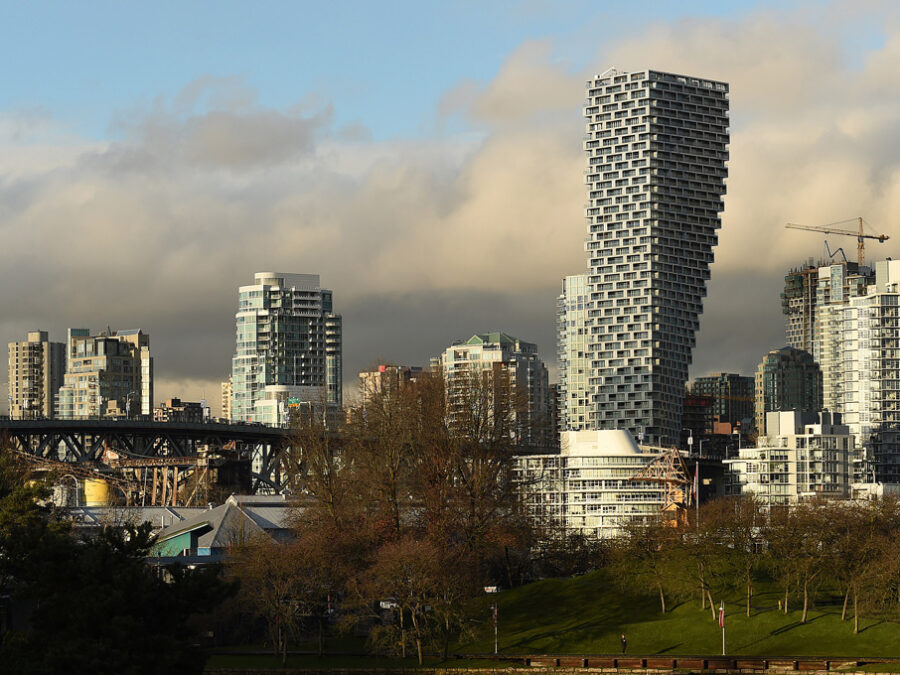
Seattle’s job market thrives on its tech giants like Amazon and Microsoft. The city creates thousands of tech positions yearly, making it a prime spot for software developers and IT professionals. The unemployment rate sits at 4.8%, lower than the national average.
Vancouver’s job scene spreads across multiple sectors. Healthcare, manufacturing, and education generate steady employment. The city faces a 6.4% unemployment rate, which is higher than Seattle’s rate.
Both cities welcome remote workers. Seattle leads in tech jobs, while Vancouver offers more choices in traditional industries like retail and public service.
Cost of Living
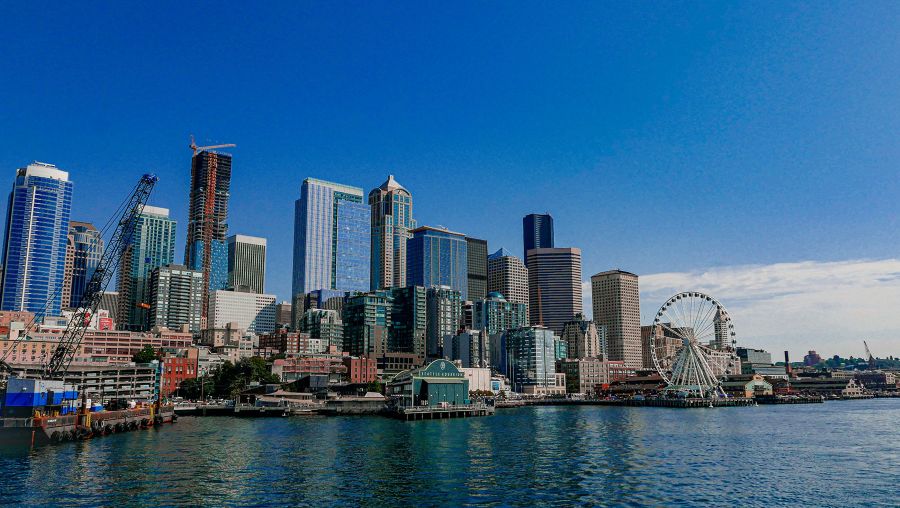
Seattle ranks among the priciest U.S. cities. Housing takes the biggest bite from paychecks. A typical one-bedroom apartment costs $2,000+ monthly in central areas.
Vancouver offers more affordable living costs. Housing prices run 30-40% lower than Seattle. Basic expenses like groceries and utilities cost less too.
Transportation costs vary. Seattle’s higher parking fees and toll roads add up quickly. Vancouver residents often spend less on daily commuting.
Average Salary

Seattle workers earn significantly more than their Vancouver counterparts. The typical household in Seattle makes 36% more than in Vancouver.
Tech workers in Seattle earn top dollar. Senior software engineers often make $150,000+ yearly, not counting stock options and bonuses.
Vancouver salaries match the local cost of living. While lower than Seattle’s, they provide comfortable living standards when paired with the city’s more modest expenses.
Entry-level positions in Vancouver start around $45,000-55,000 annually. Tech jobs pay better but still lag behind Seattle’s rates.
Urban Lifestyle
Seattle and Vancouver both deliver world-class urban living experiences with unique flavors. Each city mixes modern amenities with distinct cultural vibes that shape daily life for residents.
Housing and Real Estate
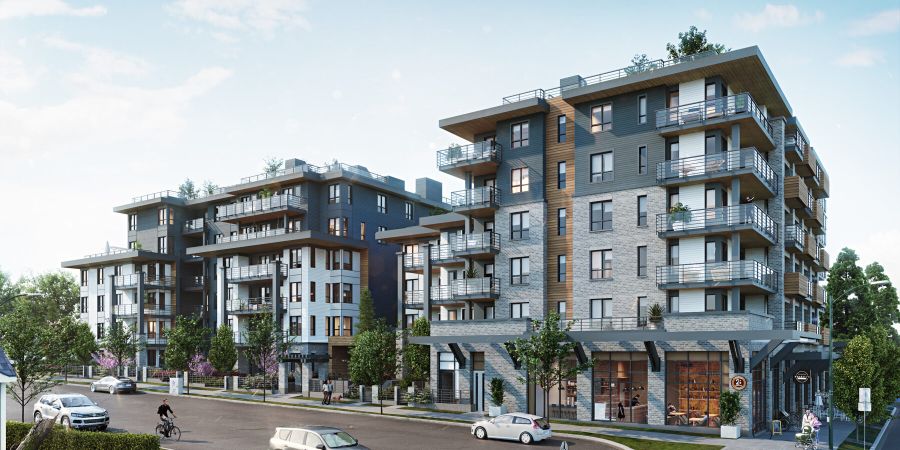
Vancouver’s housing market tends to be pricier than Seattle’s, with more high-rise condos and apartment buildings dotting the skyline. The average rent for a one-bedroom apartment in downtown Vancouver runs about $2,650.
Seattle offers more varied housing options, from modern apartments to historic craftsman homes. Many neighborhoods like Capitol Hill and Ballard blend old architecture with new developments.
Space comes at a premium in both cities. Vancouver’s West End and Yaletown feature sleek glass towers, while Seattle’s Queen Anne and First Hill mix vintage charm with urban convenience.
Public Transportation
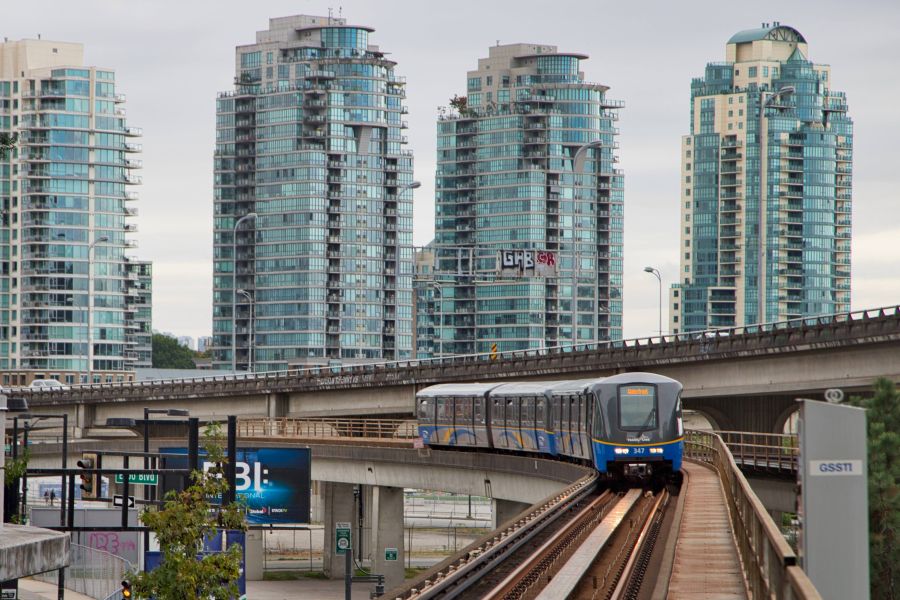
Vancouver’s SkyTrain system connects major areas efficiently with three main lines. The Canada Line whisks travelers from downtown to the airport in just 26 minutes.
Seattle’s Link Light Rail serves key neighborhoods and continues expanding. Buses fill transportation gaps in both cities, though Vancouver’s network runs more frequently.
Both cities are bike-friendly with growing networks of dedicated lanes. Vancouver edges ahead with more protected bike paths and car-free greenways.
Food and Dining Scene
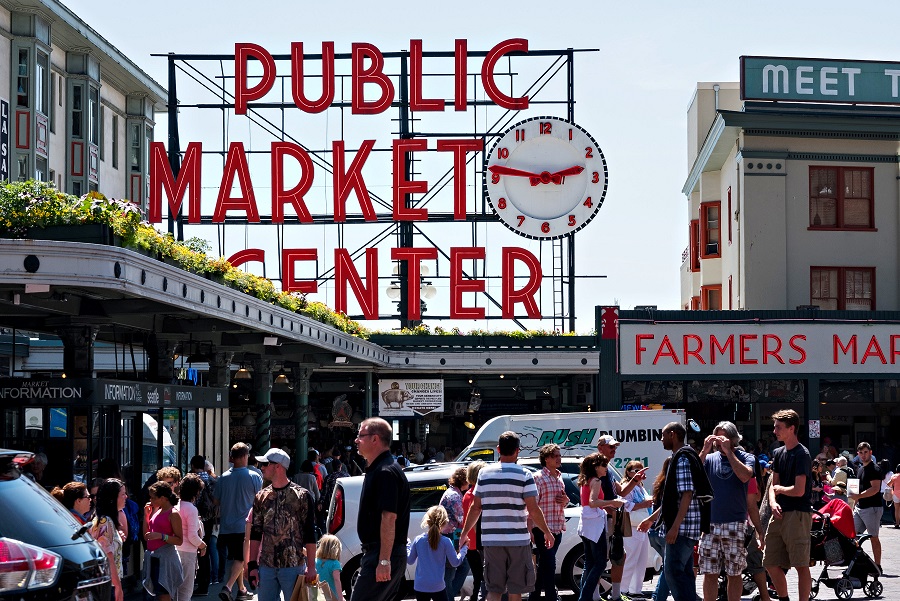
Seattle’s food scene sparkles with fresh seafood and Pacific Northwest ingredients. Pike Place Market anchors the local food culture with fresh produce and artisanal goods.
Local coffee culture runs deep in both cities. Seattle birthed Starbucks, while Vancouver claims dozens of independent roasters and cafes.
Vancouver stands out for authentic Asian cuisine, especially in Richmond and along Robson Street. The city’s diverse population creates a rich mix of dining options from dim sum to Korean BBQ.
Street food thrives in both places. Seattle’s food trucks serve everything from Hawaiian poke to Mexican tacos. Vancouver’s night markets bring Asian street food culture to life.
Outdoor Recreation
Both Seattle and Vancouver offer amazing outdoor activities year-round thanks to their location between mountains and water. The cities give easy access to hiking trails, ski slopes, and water activities within minutes of downtown.
Parks and Nature
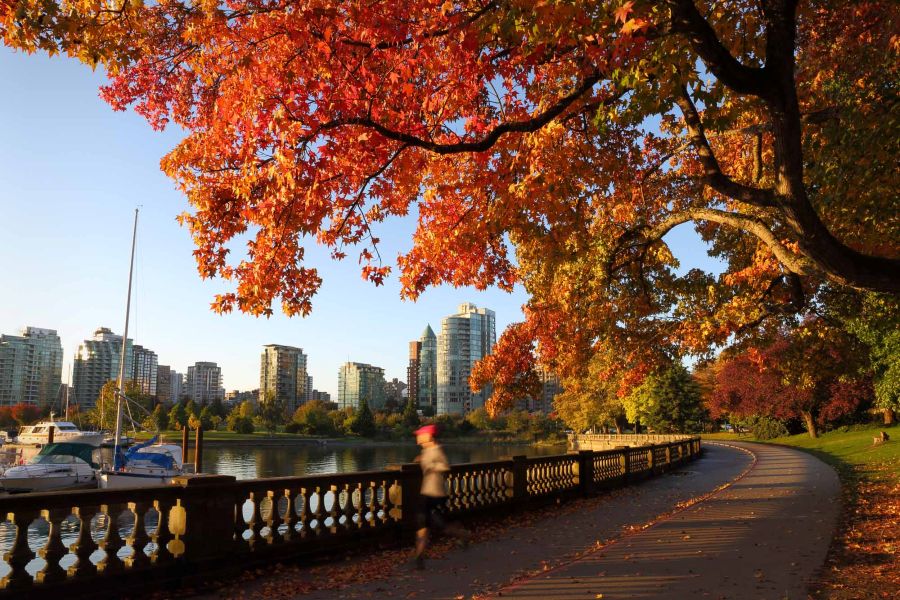
Stanley Park stands out as Vancouver’s crown jewel – a 1,000-acre urban forest with walking trails, beaches, and gardens. The seawall path stretches 5.5 miles around the park’s perimeter, perfect for biking or walking while taking in ocean views.
Seattle’s Discovery Park covers 534 acres on a peninsula, featuring hiking trails through woods and meadows. The park’s lighthouse and beach areas provide spots for wildlife viewing and photography.
The mountains near both cities offer excellent hiking from spring through fall. Vancouver’s North Shore Mountains and Seattle’s Cascade Range provide trails for all skill levels, from easy nature walks to challenging summit climbs.
Sports and Fitness Activities
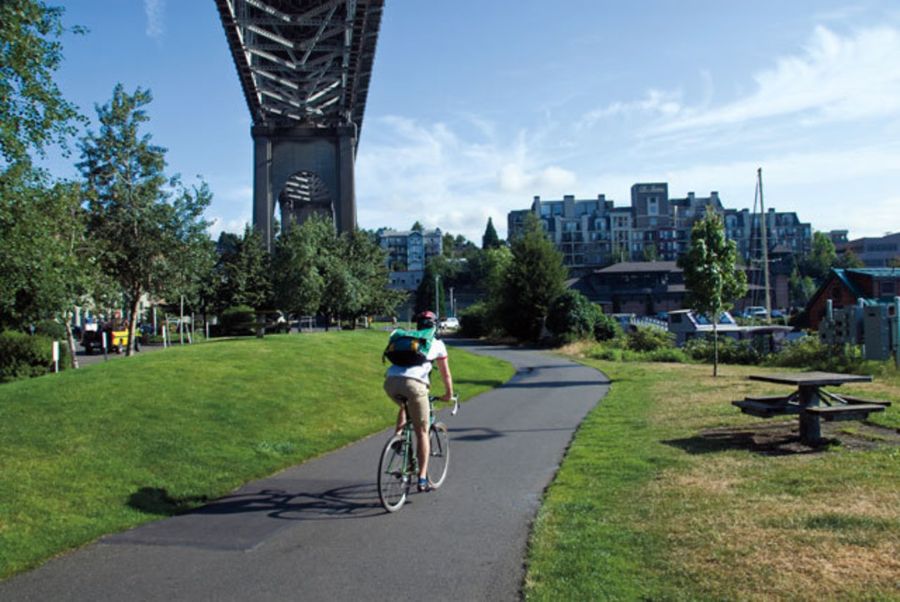
Both cities maintain extensive networks of bike lanes and paths. Vancouver’s separated bike lanes make cycling safer and easier throughout downtown. Seattle’s Burke-Gilman Trail spans 27 miles through the city and surrounding areas.
Winter sports thrive near both cities. Vancouver has three local ski areas – Cypress, Grouse, and Seymour – all within 30 minutes of downtown. Seattle residents can reach Snoqualmie Pass in under an hour for skiing and snowboarding.
Rock climbing gyms dot both cities, while outdoor climbing spots like Squamish near Vancouver and Leavenworth near Seattle draw climbers from around the world.
Waterfront and Beaches

Vancouver’s beaches offer stunning mountain views and summer swimming spots. Popular beaches include:
- Kitsilano Beach (warm shallow waters)
- English Bay Beach (sunset views)
- Spanish Banks (long sandy stretches)
Seattle’s waterfront focuses more on Puget Sound activities like kayaking and paddleboarding. Alki Beach provides a long sandy strip perfect for walking, volleyball, and watching ferries cross the sound.
Both cities feature waterfront paths connecting multiple parks and beaches. Vancouver’s seawall system extends 17 miles, while Seattle’s waterfront trail system links several neighborhoods and green spaces.
Leisure and Entertainment
Both Seattle and Vancouver offer exciting entertainment scenes filled with unique attractions and activities. Each city brings its own distinct cultural flair to nightlife, shopping, and family fun.
Nightlife and Social Scene
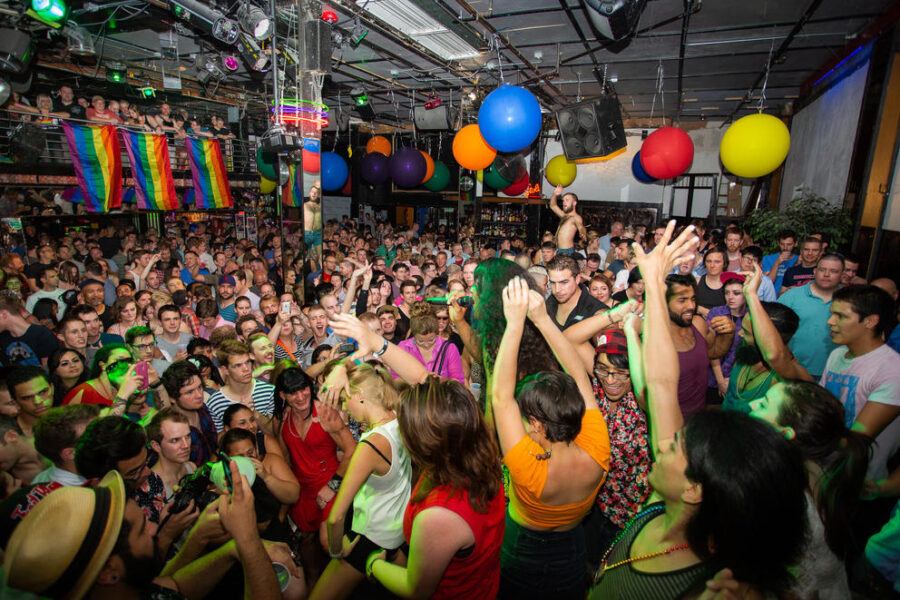
Seattle’s nightlife centers around the vibrant Capitol Hill and Belltown districts. Live music venues showcase local bands and touring acts, with a mix of cozy pubs and upscale cocktail bars.
The craft beer scene thrives in both cities. Seattle boasts over 70 breweries, while Vancouver features numerous craft brewhouses in the Granville and Gastown neighborhoods.
Vancouver’s Granville Street transforms into party central after dark. The strip features nightclubs, sports bars, and live music venues that stay busy until early morning.
Both cities take pride in their coffee culture. Seattle gave birth to Starbucks, but local cafes serve amazing artisanal brews. Vancouver matches with independent coffee shops scattered throughout neighborhoods like Gastown and Commercial Drive.
Shopping and Markets
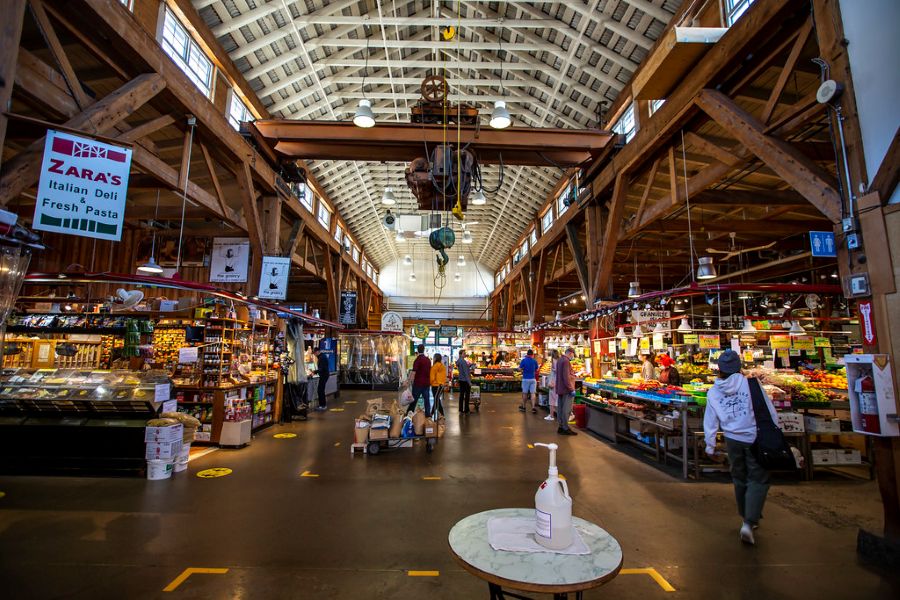
Granville Island Public Market stands out as Vancouver’s premier shopping destination. Local artisans sell handmade crafts while food vendors offer fresh produce and prepared meals.
Pike Place Market in Seattle draws crowds with its famous fish-throwing vendors and local craftspeople. The nine-acre historic district features hundreds of small businesses and eateries.
Both cities feature modern shopping centers. Vancouver’s Pacific Centre and Seattle’s Westlake Center provide rainy-day retail therapy with major brands and department stores.
Family-Friendly Attractions
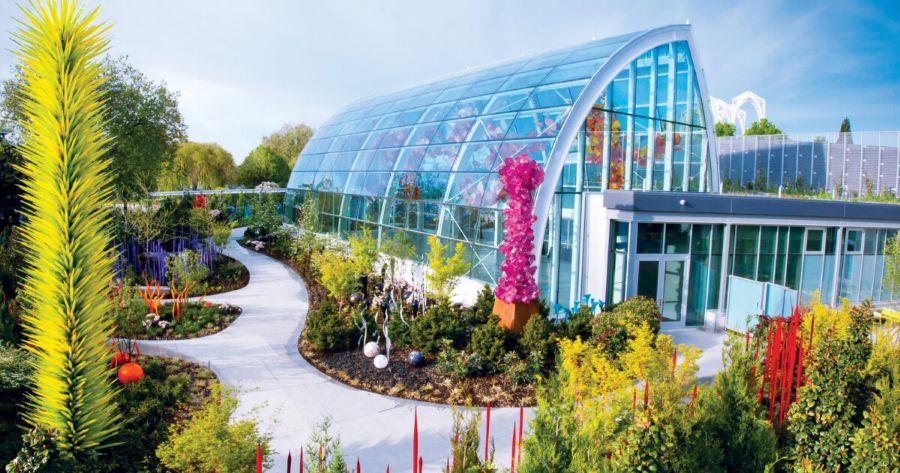
The Chihuly Garden and Glass amazes visitors with stunning glass sculptures in Seattle. Kids love exploring the colorful exhibits and garden spaces.
Science World in Vancouver sparks curiosity with interactive displays and live demonstrations. The distinctive geodesic dome houses exhibits perfect for young minds.
The Seattle Art Museum engages families through special programs and youth-focused exhibits. Vancouver’s Stanley Park offers a mix of natural beauty and attractions like the Vancouver Aquarium.
The Seattle Children’s Museum and Vancouver’s Kid’s Market provide indoor entertainment spaces designed specifically for younger visitors.
Comparison Summary
Seattle and Vancouver share many similar qualities as major Pacific Northwest cities, yet each has unique characteristics that set them apart. Both cities offer stunning natural beauty and vibrant urban lifestyles, though they differ in key areas like cost of living and healthcare systems.
Key Similarities
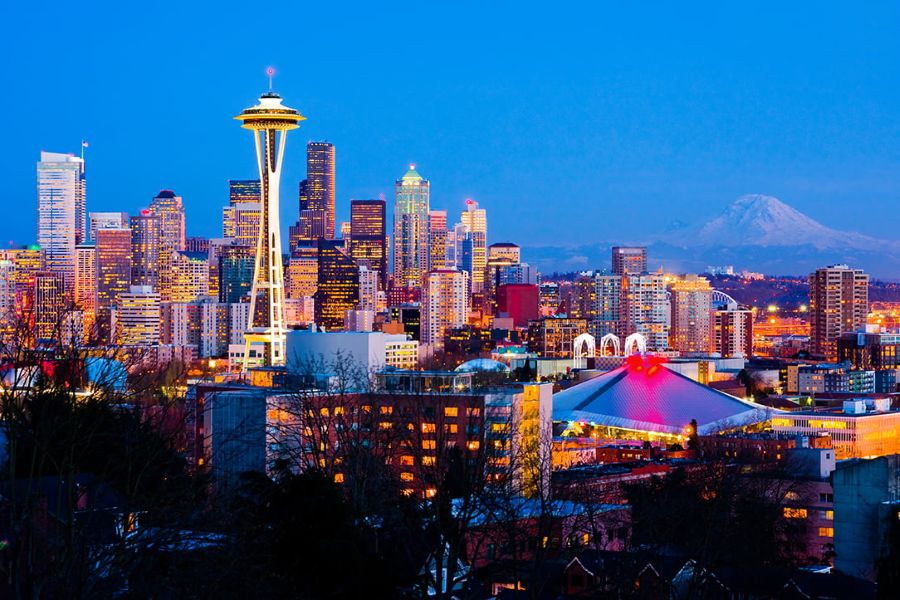
Both cities boast spectacular mountain and water views with access to outdoor activities year-round. The climate in each city stays mild, with cool winters and warm summers that rarely reach extreme temperatures.
The urban culture feels remarkably alike. You’ll find fantastic coffee shops, diverse food scenes, and tech-focused economies in both places. Each city attracts young professionals and offers excellent public transit options.
Both Vancouver and Seattle embrace environmental consciousness and sustainable living. Green spaces dot both cities, with large urban parks like Stanley Park and Discovery Park giving residents room to breathe.
Distinct Differences
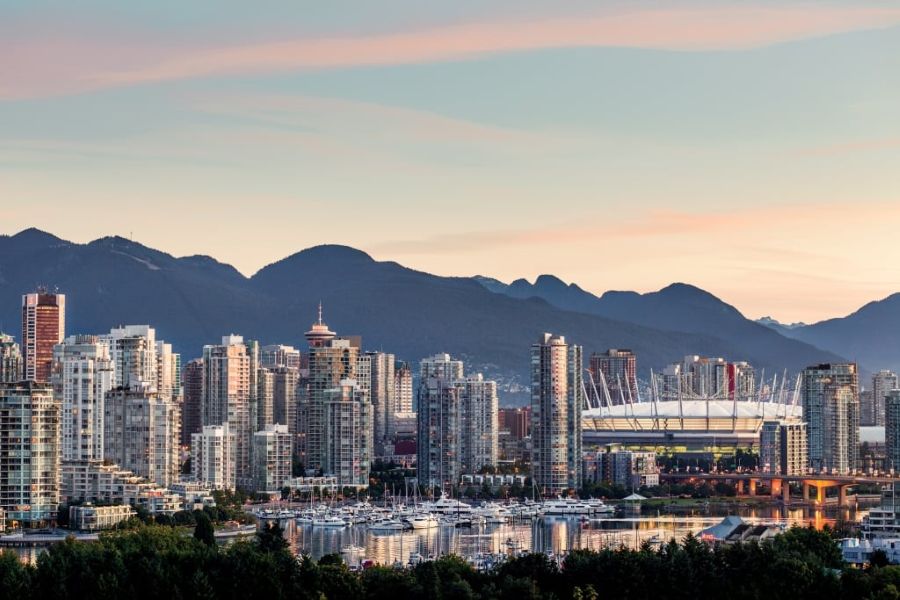
Vancouver’s population density packs more people into its urban core, creating a more walkable city experience. The healthcare system differs significantly – Vancouver uses Canada’s public system while Seattle follows the U.S. private insurance model.
Living costs show notable contrasts. Vancouver’s housing market feels more reasonable, with costs about 26% lower than Seattle. Basic expenses like groceries and dining out tend to cost less in Vancouver too.
The cities maintain different vibes – Vancouver feels more international with its large Asian influence and multicultural population. Seattle keeps a distinctly American Pacific Northwest identity, with strong ties to grunge culture and aviation history.
Local laws and regulations create different daily experiences. Vancouver’s stricter gun laws and more liberal drinking age affect social activities, while Seattle’s minimum wage laws impact service costs.
Frequently Asked Questions
Both Seattle and Vancouver offer distinct lifestyles with unique advantages in areas like healthcare, job markets, and cultural experiences. Each city brings its own tax rules, living costs, and urban planning approaches that shape daily life for residents.
What are the differences in cost of living between Vancouver and Seattle?
Vancouver tends to be more affordable than Seattle in many areas. Housing costs in Seattle run higher, with both cities facing steep real estate prices.
The job market plays a big role in these costs. Seattle jobs, especially in tech, pay much better – often double or triple the wages in Vancouver.
What factors contribute to Vancouver’s high popularity compared to Seattle?
Vancouver’s universal healthcare system attracts many people. The city has excellent public transit and lots of green spaces.
The mild climate and mix of mountains and ocean views make Vancouver super appealing. Many folks love the international food scene and diverse cultural mix.
How do the tax systems differ between Seattle and Vancouver?
Seattle has no state income tax, while Vancouver residents pay both federal and provincial income taxes. Washington state relies more on sales tax.
Property taxes work differently too. Vancouver uses a system based on assessed value, while Seattle’s rates tie to local levies and bonds.
Which city, Vancouver or Seattle, offers a better quality of life for residents?
Which city, Vancouver or Seattle, offers a better quality of life for residents?
Seattle shines with higher wages and more job options, especially in tech. The city also has amazing nightlife with tons of music venues, breweries, and restaurants.
Vancouver wins points for its healthcare system and outdoor activities. The city makes it easy to bike, walk, or take transit everywhere.
Can you compare the population sizes and urban density of Seattle versus Vancouver?
Seattle has more people spread across a bigger area. The city keeps growing as tech companies bring in new workers.
Vancouver packs its population into a smaller space. This creates a denser, more walkable urban environment.
Between Vancouver and Seattle, which city is considered more pedestrian-friendly?
Vancouver takes the lead in walkability. The city designed its neighborhoods around walking and biking.
The SeaWall and extensive bike lanes make getting around without a car simple. Transit options connect most parts of the city well.
Streets feel safer for walking in Vancouver. The city puts pedestrians first in many areas, with wide sidewalks and good lighting.
